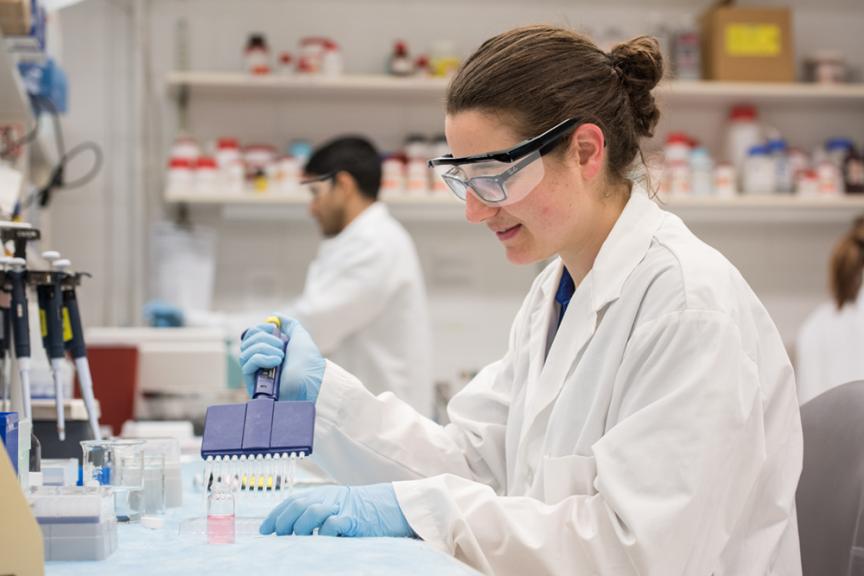
PhD Program

Our doctorate program is the right path for you if you intend to build a career as a scholar, researcher, teacher, or industry professional in the science of human movement, kinesiology, or other allied health fields or biomedical science settings.

Program Overview
Students pursuing a PhD in Movement Science develop scholarly and research competence, culminating in an original doctoral dissertation contributing to the body of knowledge in kinesiology. The program is designed for students who intend to make their careers as scholars, teachers, researchers, and professionals in exercise physiology, biomechanics, motor control, and allied fields.
Each doctoral student works closely with a faculty advisor from the beginning of their degree program. Under their faculty advisor’s guidance, they are expected to take relevant coursework, engage in relevant research experiences (lab rotations, independent study projects, etc.), generate research ideas, and complete a research dissertation prior to graduation.
A principal goal of doctoral student training is achieving competence as an independent scholar. This entails not only proficiency in research but in the dissemination of knowledge. To achieve this, students learn to guide the learning of others as a Graduate Student Research Assistant (GSRA) or Graduate Student Instructor (GSI).
Doctoral students and their faculty advisors will form a Guidance Committee, Qualifying Examination Committee, and a Dissertation Committee to provide advice and evaluate student progress at successive stages of the program.
Movement Science PhD Curriculum
PhD students choose from a set of core courses in Kinesiology, as well as cognate courses from other units, and complete a minimum of 30 pre-candidacy credits beyond the master's level. Qualifying examinations must be passed before advancing to candidacy, after which the student completes an original doctoral dissertation. A minimum of 50 credits including pre-candidacy and candidacy work must be completed to graduate.
The courses you take will vary, depending on your educational goals. Courses taken for graduate credit will carry MOVESCI or KINESLGY program codes, and are numbered 500 and above.
Movement Science Graduate Faculty
Our Movement Science graduate faculty are leaders in their fields, and have a variety of interests and specialties. View the MVS graduate faculty list.
Forms & Bulletins
The Graduate Bulletin contains a wealth of information, including requirements for admissions, coursework, doctoral candidacy, and more. The Policies and Procedures page includes a wider selection of Bulletins, plus forms required for progress towards your PhD degree.